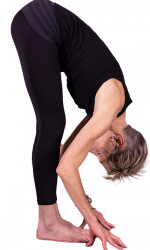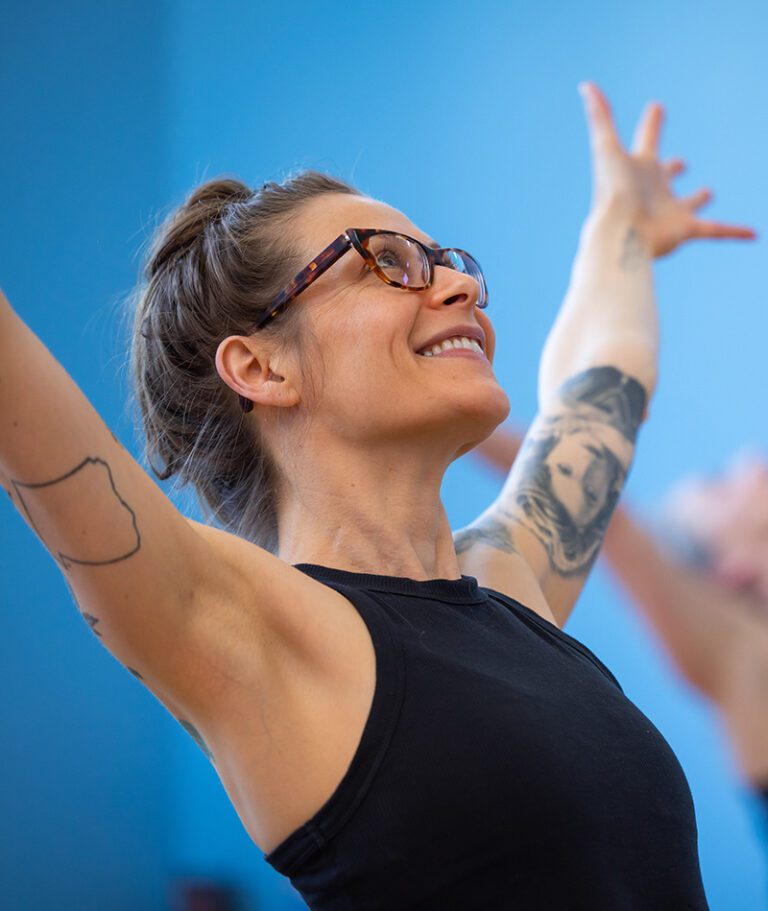Accepting applications for the 2026-27 school year
Accepting applications for the 2026-27 school year
October 19 – 23, 2026
Online or in-person at The Asheville Yoga Center
Ayuryoga® is a system of physical asana (poses), pranayama (breathwork), and meditation developed by Vasant Lad, BAMS, MASc that utilizes the Ayurvedic principles to harness the therapeutic effects of yoga practice and applies it to support healing on an individual and group basis.
Yoga and Ayurveda are widely understood to be sister sciences; two sides of the same coin that need each other to be fully and completely fulfilled. The ancient vedic and yogic texts place great emphasis on the need to eat the correct foods and follow a sattvic lifestyle that is supportive of yoga and meditation practices.
Both Yoga and Ayurveda share the understanding that states of imbalance are the result of impurities accumulating in the body and mind and blocking their channels.
Through employing the principles of Ayurveda in diet and lifestyle and Yoga in our spiritual practice, we can better allow prana (the life force) to flow through the many gross and subtle channels of the body, thus eliminating ill-health and helping us elevate our consciousness.
Many of the asanas, breathing, and meditation techniques that form part of this practice will be familiar to those who have explored other forms of Hatha Yoga (physical yoga).
What makes Ayuryoga unique is that the principles of Ayurveda; the five great elements, three doshas, and the twenty universal gunas (qualities) are used to understand the effects of the various practices on the body and mind, are thus employed, using Ayurveda’s ‘like increases like’ philosophy to support optimal health and healing from states of imbalance.

Ayuryoga views forward bending asanas to be generally heating as they compress and envelop the organs of digestion; the location of the body’s predominant agni (digestive fire/ metabolism). Thus, poses such as Uttanasana or Paschimottanasana can help us to kindle the digestive fire in conditions like low appetite, gas, bloating or indigestion.

As someone interested in studying Ayurvyoga yoga teacher training, you should understand the connection between Ayurveda and Yoga.
All current students of the Ayurvedic Institute or graduates of the programs since 2016 are welcome to join the Ayuryoga Teacher Training programs.
No prior experience or qualifications are required, although a familiarity with basic asana and an established personal yoga practice can assist students in gaining dexterity with this modality.
Our students tend to be Ayurveda students, health counselors, or practitioners that are looking to add asana, pranayama, and meditation to their toolbox of offerings to assist clients in a clinical and therapeutic setting.
Our 200 and 300 hour programs run in tandem with years one and two of our Ayurvedic Studies Program and each year a large number of students join the YTT!
There are many reasons why practitioners of Ayurveda may want to learn more about Ayuryoga and become a teacher. Here are some:
The Ayurvedic Institute is proud to offer both in-person and online Yoga Teacher Trainings in Ayuryoga at 200hr and 300hr levels. For those attending in person, the training takes place over a series of weekends at our yoga and Ayurveda Center in Asheville, North Carolina.
Both the 200 and 300 hr YTTs integrate theory and practice. Classes include a lecture component, and students are encouraged to take notes and engage in reflective processes at various points of the training.
Physical practice of asana, pranayama, and meditation is included as well as plenty of practice teaching each of these components and working with individual clients and groups to teach and perform adjustments.
Students will be guided through the course handbook: Synergy of Yoga and Ayurveda as well as supplemental materials such as web resources and ancient vedic texts.
Participants will…
Participants will…
*Completion of the 200 hr Ayuryoga YTT is a requirement for attending the 300 hr YTT.
Graduates of the Ayuryoga program will be confident in…
Check out these Ayuryoga immersions at our continuing education company, Ayurprana!
For more information on upcoming dates or to request an application, contact admissions@ayurveda.com
Interested in learning Ayuryoga but aren’t a current or past AI student, or aren’t able to commit to the Ayuryoga teacher trainings as a matter of time or financially?
Check out these Ayuryoga immersions at Asheville Yoga Center and our continuing education company, Ayurprana!
Applications are due on September 10. But why wait? Apply now and start your journey
We’d love to host you! Sign up for a campus tour below
Send us a note or speak with an Admissions Counselor to help answer any of your questions